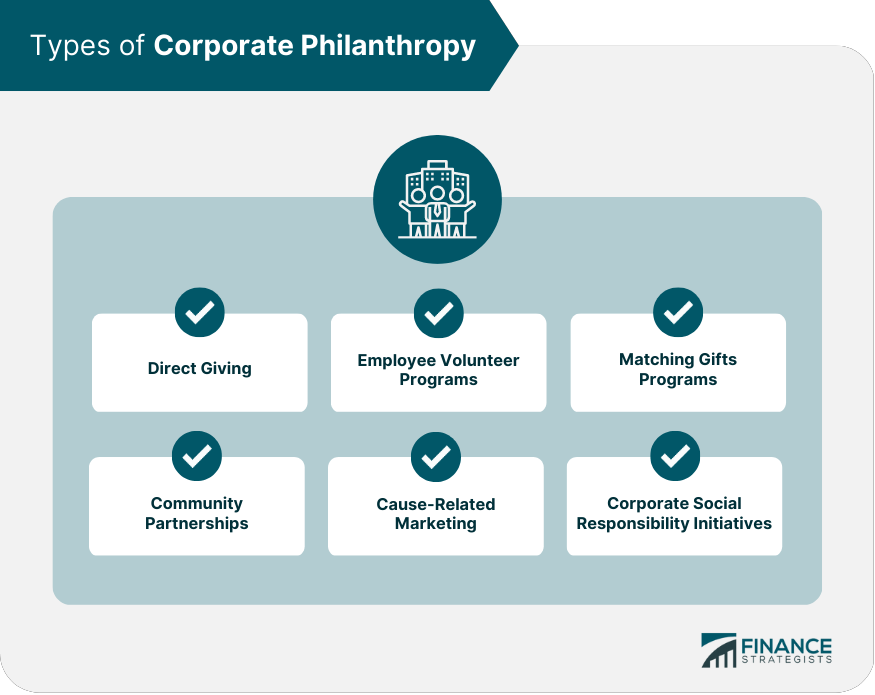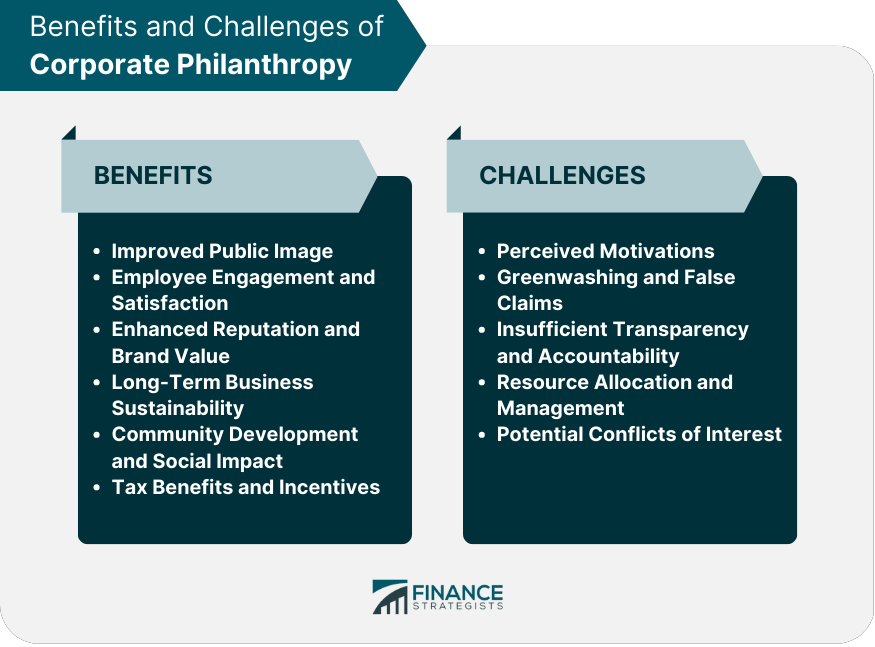Corporate philanthropy is a key component of modern businesses, reflecting a commitment to giving back to society and promoting positive change. As corporations continue to grow and wield increasing influence, understanding corporate philanthropy's history, impact, and potential is essential for both businesses and the communities they serve. Corporate philanthropy refers to the voluntary act of a corporation or business providing financial support, in-kind donations, or other resources to nonprofit organizations, causes, or initiatives that promote the public good. This can take various forms, ranging from direct monetary donations to community partnerships and employee volunteer programs.
The concept of corporate philanthropy dates back to the late 19th century when prominent business leaders, such as Andrew Carnegie and John D. Rockefeller, began to invest their wealth in philanthropic endeavors. Over time, this practice has evolved and expanded, with businesses embracing their social responsibility and recognizing the benefits of contributing to the greater good. Corporate philanthropy plays a crucial role in addressing pressing social, environmental, and economic challenges while also fostering a positive image for businesses. By supporting philanthropic initiatives, companies can strengthen their relationships with stakeholders, enhance employee satisfaction, and contribute to the long-term sustainability of their operations. One of the most common forms of corporate philanthropy, monetary donations involve businesses providing financial contributions to nonprofit organizations, community projects, or causes that align with their values or goals. In-kind donations refer to non-monetary contributions, such as goods, services, or expertise, that a company provides to support charitable initiatives. Examples include donating products, offering professional services, or granting access to company facilities. These programs encourage employees to volunteer their time and skills in support of charitable initiatives or community projects. Companies may offer paid volunteer hours or organize company-wide volunteer events to facilitate employee involvement. Matching gift programs involve companies matching the charitable donations made by their employees, effectively doubling the impact of individual contributions. Through community partnerships, businesses collaborate with local organizations or groups to address specific issues or support initiatives that benefit the community as a whole. This form of corporate philanthropy involves a company partnering with a nonprofit organization to promote a cause or issue, often through the sale of products or services. A portion of the proceeds from these sales is then donated to the partner organization or cause. Corporate social responsibility (CSR) initiatives encompass a broad range of ethical and sustainable business practices, including environmental stewardship, fair labor practices, and diversity and inclusion efforts. While not strictly philanthropic, CSR initiatives contribute to the overall positive impact of a company on society. Corporate philanthropy can enhance a company's public image by demonstrating its commitment to social and environmental issues, thereby fostering goodwill and trust among consumers and stakeholders. Philanthropic initiatives can boost employee morale, engagement, and job satisfaction by fostering a sense of purpose and pride in the company's values and contributions to society. Supporting charitable causes and initiatives can strengthen a company's reputation and brand value, setting it apart from competitors and attracting customers who value socially responsible businesses. By addressing social, environmental, and economic challenges, corporate philanthropy contributes to a company's operations' long-term sustainability and stability. Corporate philanthropy helps support community development and create positive social change by providing resources and funding for vital programs, services, and initiatives. Engaging in corporate philanthropy can provide businesses with tax benefits and incentives, such as deductions for charitable donations or credits for supporting certain community initiatives. These benefits can help offset the costs of philanthropic efforts and encourage further investment in social causes. Some critics argue that corporate philanthropy may be driven by self-interest rather than genuine altruism, with companies seeking to improve their public image or gain access to new markets rather than addressing pressing social issues. Greenwashing occurs when a company exaggerates or misrepresents its environmental or social efforts to appear more responsible than it is. This practice undermines the credibility of corporate philanthropy and can lead to public distrust. A lack of transparency and accountability in corporate philanthropy can make it difficult for stakeholders to assess the true impact of a company's efforts, potentially undermining their confidence in the organization's commitment to social good. Efficiently allocating resources and managing philanthropic initiatives can be challenging for businesses, especially when balancing the demands of their core operations with their commitment to social responsibility. Corporate philanthropy can sometimes create conflicts of interest, particularly when a company's charitable efforts are perceived to be influenced by its commercial interests or when philanthropic initiatives inadvertently contribute to social or environmental problems. By aligning their philanthropic efforts with their overall business strategy, companies can create a more cohesive and impactful approach to social responsibility that supports their long-term objectives. Partnering with reputable nonprofits and community organizations can help businesses better understand local needs, develop tailored solutions, and maximize the impact of their philanthropic efforts. Fostering a culture of giving within the organization and encouraging employee involvement in philanthropic initiatives can lead to greater engagement, satisfaction, and impact. Establishing clear goals for philanthropic initiatives and regularly measuring their impact can help businesses to refine their approach, improve their effectiveness, and demonstrate their commitment to social responsibility. Transparently communicating the objectives, progress, and impact of corporate philanthropy initiatives can help build trust among stakeholders and ensure that companies are held accountable for their efforts. Many leading global companies, such as Microsoft, Google, and Coca-Cola, have established comprehensive philanthropic programs that support a wide range of social, environmental, and educational initiatives. Some businesses have developed innovative and high-impact philanthropic initiatives, such as TOMS Shoes' "One for One" model, which donates a pair of shoes to a child in need for every pair sold, or Salesforce's 1-1-1 model, which commits 1% of the company's equity, 1% of its product, and 1% of employee time to charitable causes. Successful collaborations between corporations and nonprofit organizations, such as the partnership between Starbucks and Conservation International, demonstrate the potential for businesses to work together with other sectors to create meaningful social change. Corporate philanthropy plays a vital role in modern business, offering companies the opportunity to give back to society, foster positive change, and enhance their long-term sustainability. By understanding the different types of corporate philanthropy, its benefits and challenges, and the best practices for effective implementation, businesses can maximize their social impact and create lasting value for their stakeholders and the communities they serve. As corporations continue to grow and wield increasing influence, their potential to create positive change through philanthropic efforts becomes ever more significant. By embracing corporate philanthropy and adopting innovative and impactful strategies, businesses can address pressing social, environmental, and economic challenges while fostering a culture of giving and responsibility within their organizations. To ensure your company effectively navigates the complex world of corporate philanthropy and maximizes its social impact, consider partnering with a wealth management professional. Overview of Corporate Philanthropy
Importance and Impact on Society and Business
Types of Corporate Philanthropy
Direct Giving
Employee Volunteer Programs
Matching Gifts Programs
Community Partnerships
Cause-Related Marketing
Corporate Social Responsibility Initiatives

Benefits of Corporate Philanthropy
Improved Public Image
Employee Engagement and Satisfaction
Enhanced Reputation and Brand Value
Long-Term Business Sustainability
Community Development and Social Impact
Tax Benefits and Incentives
Challenges and Criticisms
Perceived Motivations
Greenwashing and False Claims
Insufficient Transparency and Accountability
Resource Allocation and Management
Potential Conflicts of Interest

Best Practices for Effective Corporate Philanthropy
Aligning Philanthropic Efforts With Business Strategy
Collaborating With Credible Nonprofits and Community Organizations
Encouraging Employee Involvement and Leadership
Setting Clear Goals and Measuring Impact
Promoting Transparency and Communication
Notable Examples of Corporate Philanthropy
Major Global Companies and Their Philanthropic Initiatives
Innovative and Impactful Corporate Philanthropy Programs
Collaboration Between Corporations and Nonprofits for Social Impact
Conclusion
Corporate Philanthropy FAQs
Corporate philanthropy refers to the voluntary contributions made by businesses to nonprofit organizations, causes, or initiatives that promote the public good. It is important because it allows companies to give back to society, foster positive change, enhance their public image, and contribute to long-term business sustainability.
Corporate philanthropy benefits businesses by improving their public image, increasing employee engagement and satisfaction, enhancing reputation and brand value, and providing tax benefits and incentives. Communities benefit from corporate philanthropy through the financial support, resources, and volunteer efforts that help address pressing social, environmental, and economic challenges.
The different types of corporate philanthropy include direct giving (monetary donations and in-kind donations), employee volunteer programs, matching gifts programs, community partnerships, cause-related marketing, and corporate social responsibility initiatives.
Potential challenges and criticisms of corporate philanthropy include perceived motivations (self-interest vs. altruism), greenwashing and false claims, insufficient transparency and accountability, resource allocation and management, and potential conflicts of interest.
To ensure effective and impactful corporate philanthropy, companies should align their philanthropic efforts with their business strategy, collaborate with credible nonprofits and community organizations, encourage employee involvement and leadership, set clear goals, measure impact, and promote transparency and communication.
True Tamplin is a published author, public speaker, CEO of UpDigital, and founder of Finance Strategists.
True is a Certified Educator in Personal Finance (CEPF®), author of The Handy Financial Ratios Guide, a member of the Society for Advancing Business Editing and Writing, contributes to his financial education site, Finance Strategists, and has spoken to various financial communities such as the CFA Institute, as well as university students like his Alma mater, Biola University, where he received a bachelor of science in business and data analytics.
To learn more about True, visit his personal website or view his author profiles on Amazon, Nasdaq and Forbes.











